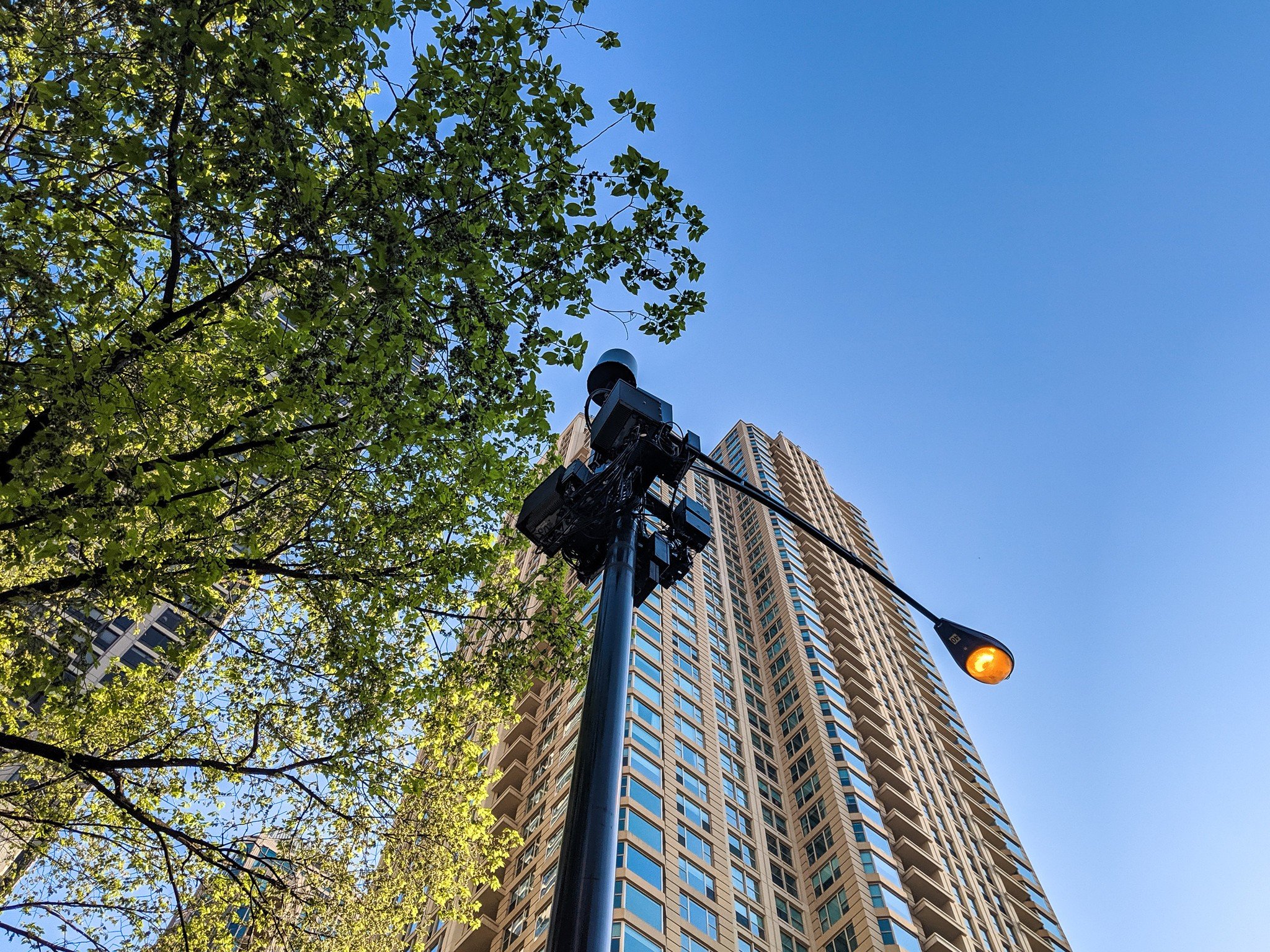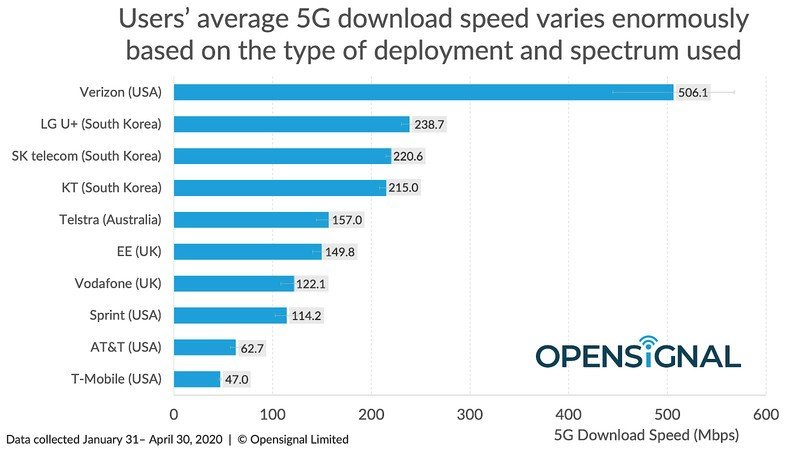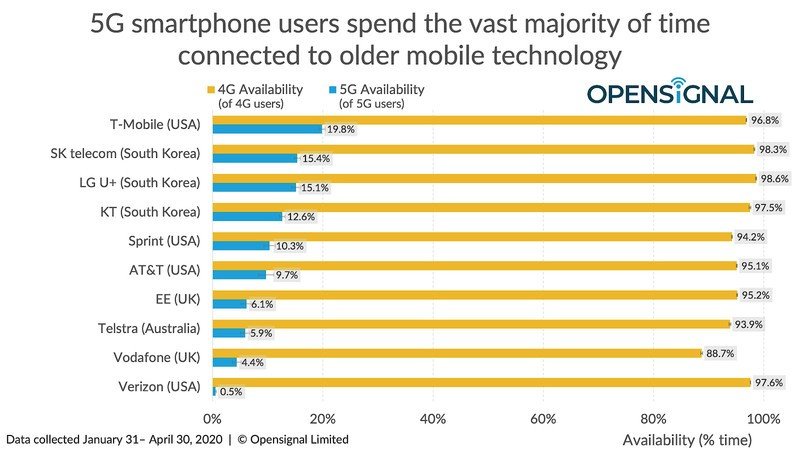Latest Opensignal report shows how 5G speeds don't matter if coverage is still bad — and Verizon is the worst offender

What you need to know
- Verizon has the fastest average 5G speeds, over 500 mbps, in Opensignal's latest testing.
- T-Mobile and AT&T had average 5G speeds of just 62 and 47 mbps, respectively.
- But 5G availability is dramatically different — Verizon customers see 5G just 0.5% of the time.
Verizon is bragging today that it has, by far, the fastest 5G speeds in the country — and some of the fastest in the world — based on the latest Opensignal 5G report comparing network speeds and availability across South Korea, Australia, the U.S. and UK. Verizon's mmWave 5G network had average download speeds of 506 mbps, over double the next-highest average speeds from South Korea's LG U+, SK Telecom and KT. Verizon's direct competitors in the U.S. fared far worse: Sprint averaged 114 mbps, AT&T 62 mbps and T-Mobile just 47 mbps.
Sounds like a win for Verizon, right? Well, this is where it's important to read the entire report. Because not only did Opensignal gather data on 5G speeds, it also figured out what percentage of the time you're actually using 5G on each carrier.
Verizon's 5G network does indeed offer incredible speeds, but data shows that its customers are only on it 0.5% of the time — yes, really. I was honestly surprised to see that Verizon customers even spend that much time on 5G. Living in NYC, one of Verizon's most-touted 5G markets, my Verizon phone will go days and weeks without seeing 5G — even when I explicitly go to areas of Manhattan that are listed as having the network. This isn't necessarily from a lack of planning, but more so a limitation of the mmWave network technology it uses.
Its 5G network uses very high frequencies (that's what mmWave is), which are easily blocked by objects — buildings, cars, trees, your own body, and even windows. That means Verizon has to have thousands of small antennas scattered everywhere in order to make sure your phone actually stays on 5G as you move around — and right now, it doesn't have enough of them in any one place to guarantee you can get 5G in any circumstance other than standing still looking directly at a tower. Yes, it's still that bad, despite its "5G built right" branding — and the data backs up my experience.
So how do the other U.S. carriers compare? Well, T-Mobile provides 5G to its customers a dramatically higher 19.8% of the time, while AT&T splits the difference at 9.7% — and it's notable that T-Mobile scored the highest of all the carriers tested here. Now we know that because T-Mobile and AT&T use lower frequency Sub-6 5G that acts quite a bit more like today's 4G, they offer dramatically wider coverage but at much lower speeds. T-Mobile and AT&T's average 5G download speeds are less than double their average 4G speeds — higher, but not world-changing.
But still, the numbers don't work out in Verizon's favor whatsoever. If you're spending up to 99.5% of your time on Verizon's 4G network, getting an average of 26.5 mbps (in Opensignal's testing), how is that actually better than spending 10-20% of your time on T-Mobile's 5G network or AT&T's 5G network that's two times the speed of Verizon's 4G on average? I'd argue it isn't, and you'd rather be on T-Mobile or AT&T right now if you're measuring your experience based on network speeds.
Right now 5G coverage still varies dramatically by city (even 4G still has large variances between regions), but as we can see based on the data, the variation is much greater on Verizon. Whereas you can pretty regularly find 5G on T-Mobile across the country, you still have to hunt around specific neighborhoods and even specific streets to find 5G on Verizon — there are just so many caveats to the experience that the speeds it has don't even matter. Keep that in mind the next time you see a Verizon 5G advertisement.
Get the latest news from Android Central, your trusted companion in the world of Android

Andrew was an Executive Editor, U.S. at Android Central between 2012 and 2020.


